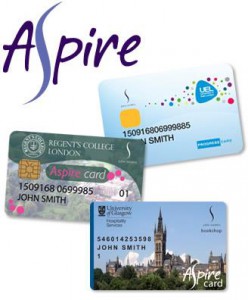 As an extra addition to the Visiting Speaker series, Dr Simon Frost, Senior Lecturer in English at Bournemouth University, came to talk to us about his current research project. Entitled ‘Private Gains and Retailed Literature: Pathways to a Sustainable-Economic Account of Reading‘ (though Frost pointed out that his subtitle keeps changing!), this ambitious project is being undertaken in association with John Smith’s, the higher-education bookseller familiar to most students for their on-campus shops.
As an extra addition to the Visiting Speaker series, Dr Simon Frost, Senior Lecturer in English at Bournemouth University, came to talk to us about his current research project. Entitled ‘Private Gains and Retailed Literature: Pathways to a Sustainable-Economic Account of Reading‘ (though Frost pointed out that his subtitle keeps changing!), this ambitious project is being undertaken in association with John Smith’s, the higher-education bookseller familiar to most students for their on-campus shops.- ‘theorisation’ – produce a model of how readers gain from books, bridging the literary and economic by investigating the idea that books meet intangible needs for readers.
- ‘tuition’ – a number of students will be involved in the research for this project, particularly in compiling the results of an extensive survey, aiming for 750 completed surveys.
- ‘professional practice’ – working in conjunction with John Smith’s, examine the shift from ‘bookseller’ to ‘book-based supplier of solutions’, in particular the move to provide new services based on outcomes/gains.
 In order to explain how he became involved with John Smith’s, Dr Frost gave us a potted pre-history of the current bookselling situation in Britain. John Smith’s has been around since 1751, so it has survived and responded to the major changes that have happened in the bookselling industry over the last several centuries, from the 1899 establishment of the Net Book Agreement (NBA) and its encouragement of dedicated bookstores, to the collapse of the Agreement in the 1990s which led to the downfall of almost all chain booksellers on the British High Street. More recently, the rise of online bookstores (themselves largely a result of the NBA’s collapse) has forced John Smith’s to rethink its business, as Amazon and its ilk have disrupted the traditional tutor-student-campus bookstore relationship. Their response has been to stop thinking of themselves as ‘booksellers’ at all and instead re-brand as a provider of solutions for students and Higher Education (HE) institutions. Indeed, their website is tagged as ‘John Smith’s Student Store’, with no reference to bookshops at all.
In order to explain how he became involved with John Smith’s, Dr Frost gave us a potted pre-history of the current bookselling situation in Britain. John Smith’s has been around since 1751, so it has survived and responded to the major changes that have happened in the bookselling industry over the last several centuries, from the 1899 establishment of the Net Book Agreement (NBA) and its encouragement of dedicated bookstores, to the collapse of the Agreement in the 1990s which led to the downfall of almost all chain booksellers on the British High Street. More recently, the rise of online bookstores (themselves largely a result of the NBA’s collapse) has forced John Smith’s to rethink its business, as Amazon and its ilk have disrupted the traditional tutor-student-campus bookstore relationship. Their response has been to stop thinking of themselves as ‘booksellers’ at all and instead re-brand as a provider of solutions for students and Higher Education (HE) institutions. Indeed, their website is tagged as ‘John Smith’s Student Store’, with no reference to bookshops at all.
In effect, this has resulted in John Smith’s working with HE institutions to provide students with all the resources they need to successfully enter, negotiate and exit higher education. Their Stirling store, for instance, lists 15 departments, providing products from art supplies to bikes, mobile phones to university-branded clothing. They are no longer thinking about how they can sell the most books to students but about how they can meet all the needs that students might have, how they can become the main provider of solutions to students’ demands and problems (as well as aiding HE institutions to meet their outcomes). In this way, their rethinking of their business model fits neatly with Dr Frost’s project, as it relocates books as one part of a service that anticipates and provides everything that students will gain from appropriating. So, a copy of ‘Mrs Dalloway’ is no longer just a tool for education and cultural influence but also a product that can be analysed and quantified in economic terms.
 For the final part of his presentation, Dr Frost went into more detail about how the relationship between students, their HE institutions and this new incarnation of John Smith’s works. An essential part of this is the distribution of bursaries to students in England (introduced as a mitigating response to the raising of tuition fees). Universities receive a sum of money from the government and parcel this out to selected students in bursaries, often around £300, which are intended to widen opportunities for students from low-income backgrounds (and, ideally, to be spent on university-related goods and services, rather than down the pub, though we did have a discussion of whether or not the social environment provided by pubs – and cafes, equally expensive though perhaps less stigmatised – is a valuable part of the university experience!). John Smith’s have become involved in this process via their ‘Aspire‘ smartcard, which can be pre-loaded with the bursary money and limits what it can be spent on. This allows for a number of interesting features, from each card being tailored to its recipient’s needs, to facilitating data gathering and feedback to the institution. Of course, as several members of the class pointed out, this has some moral and legal implications, particularly with regards to privacy (the idea of tutors being able to keep tabs on whether you’ve purchased their reading list or not is more than a little Big Brother!) and this is an area that Dr Frost will be looking into as his study develops. At the moment, though, his main questions in this area are:
For the final part of his presentation, Dr Frost went into more detail about how the relationship between students, their HE institutions and this new incarnation of John Smith’s works. An essential part of this is the distribution of bursaries to students in England (introduced as a mitigating response to the raising of tuition fees). Universities receive a sum of money from the government and parcel this out to selected students in bursaries, often around £300, which are intended to widen opportunities for students from low-income backgrounds (and, ideally, to be spent on university-related goods and services, rather than down the pub, though we did have a discussion of whether or not the social environment provided by pubs – and cafes, equally expensive though perhaps less stigmatised – is a valuable part of the university experience!). John Smith’s have become involved in this process via their ‘Aspire‘ smartcard, which can be pre-loaded with the bursary money and limits what it can be spent on. This allows for a number of interesting features, from each card being tailored to its recipient’s needs, to facilitating data gathering and feedback to the institution. Of course, as several members of the class pointed out, this has some moral and legal implications, particularly with regards to privacy (the idea of tutors being able to keep tabs on whether you’ve purchased their reading list or not is more than a little Big Brother!) and this is an area that Dr Frost will be looking into as his study develops. At the moment, though, his main questions in this area are:
- Is the diversity of purchasing agency (i.e. those involved in the process of purchasing) now so great that it produces a break from the linear rational-choice model of purchasing?
- Do the limits imposed by the ‘Aspire’ model constitute an interruption of free will or free exchange? They limit the convertibility of one resource to another (the bursary can be turned into books or bikes but not beers) but do they also limit free choice? Such limits are common in the public world but how do they function in the semi-commercial and commercial spheres?